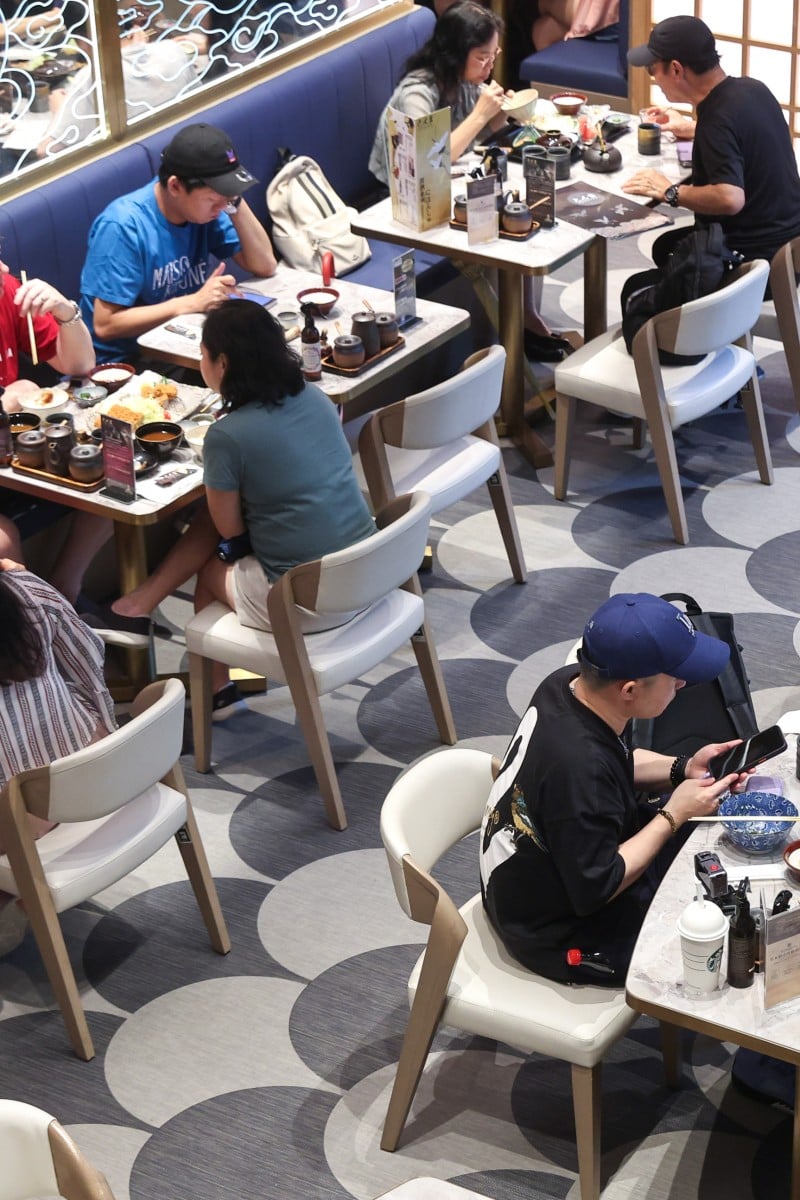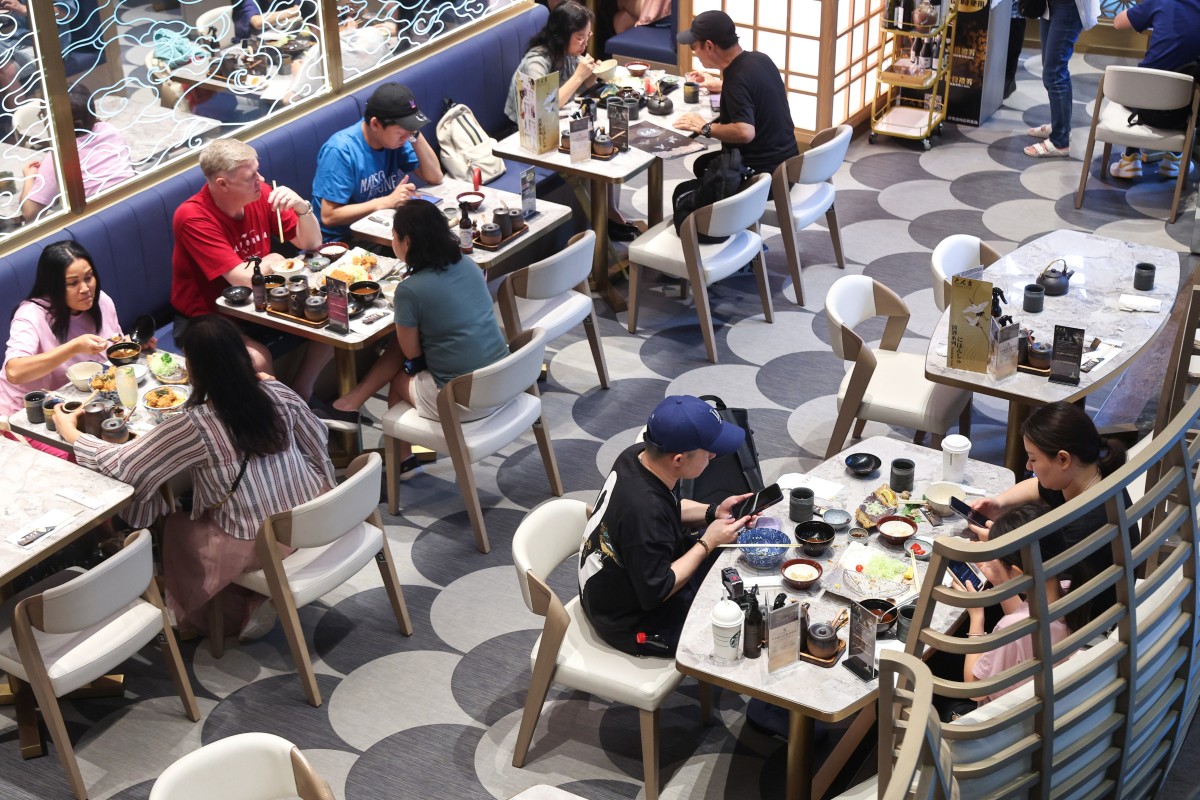
- Environmental association Greeners Action suggested the government promote the idea but warned about issues like lack of space, increased workload and costs
- Dining industry leader said initiative had good intentions but is hard to do on a large-scale basis
 Most Hong Kong restaurants are willing to lend customers containers for takeaway orders, but an industry leader has cast doubt on the idea. Photo: Edmond So
Most Hong Kong restaurants are willing to lend customers containers for takeaway orders, but an industry leader has cast doubt on the idea. Photo: Edmond SoAn environmental association’s survey has revealed that almost 70 per cent of eateries are ready to participate in lunchbox lending for takeaway orders after authorities in Hong Kong banned disposable plastics last month.
Environmental group Greeners Action, which carried out the survey, suggested the government promote takeaway container borrowing services in the community as a further step to reduce plastic, despite a lukewarm response from a catering industry leader.
“Although paper, wood and bamboo are easier to decompose than plastics, utensils made of such materials don’t change their nature – they are still disposable,” said Beatrice Siu Wing-yin, senior public affairs officer at Greeners Action.
“Promoting bringing your own tableware and reusable, washable tableware rental are the best ways to reduce waste at the source.”
Greeners Action surveyed 171 restaurants between March and April and found that 68 per cent of the respondents were willing to take part in tableware renting practices.
Close to two-fifths said they were willing to set up reusable container rental machines on the premises.
Environmental authorities last month imposed the first of a two-phase disposable plastics ban targeting the city’s restaurants, hotels and retailers.
Restaurants can no longer provide diners with styrofoam containers and throwaway plastic utensils, such as forks, knives, swizzle sticks and straws.
The launch date for the second phase, which will cover single-use plastic cups and boxes for takeaway services, has yet to be announced.
Yvonne Leung, operator of the Space Cafe in Ngau Tau Kok, began phasing out throwaway utensils about eight years ago after discovering reusable straws made of stainless steel during a trip to Taiwan.
“They looked so beautiful, I thought back then,” she said. “It would be nice to use them in my restaurant.”
As Hong Kong’s ban on single-use plastics begins, here’s how customers and restaurants are reacting
Leung started switching to reusable lunchboxes for takeaway orders in 2020. Customers have to pay a refundable deposit of HK$5 (64 US cents) for each container.
She said those who needed to rent a container amounted to a small fraction of the orders, with the rest bringing their own boxes and bottles for takeaway food.
Last October, vending machines that dispense free reusable food containers were installed at the city’s eight public universities. Users need to pay a HK$20 deposit, with no time limit on return and no washing-up required afterwards.
Foodpanda, Hong Kong’s largest food delivery service platform, also launched a reusable packaging pilot scheme in 2022. Diners can return empty boxes to 10 collection machines in Central, Admiralty, Wan Chai and Causeway Bay.
Since February 2023, customers have also been able to give empty containers to a rider on their next Foodpanda order.
Greeners Action said the restaurants polled were most concerned about the lack of space to store the containers, followed by extra workload and cost.
Siu said some of the interviewed restaurateurs did not know how many boxes should be prepared because their takeaway orders varied daily, while such reusable containers could not be hoarded in advance as easily as conventional, single-use receptacles.
About one-third of the eateries said they wished authorities or lunchbox lending platforms could wash and deliver containers to them without charging extra.
Twenty-five restaurants said they hoped to see more government incentives, such as tax reductions and sanitary certifications of service providers, to adopt reusable container rentals.
Simon Wong Kit-lung, honorary president of trade group the Institute Of Dining Professionals, said that although environmentalists had good intentions promoting lunchbox rentals, it was not easy to execute at scale.
“It will cost many resources, such as logistics. You also have to mobilise the customers to return the boxes themselves,” he said. “It is easier for independent restaurants because they have more flexibility.
“Unless there is one big organisation spearheading the building of a citywide network of such containers, I don’t see any of the catering groups managing to do that.”
The Environmental Protection Department said the government had no plans to develop a centralised lunchbox lending service.
“We need to consider relevant factors such as market supply and demand, public habits, practical feasibility and cost-effectiveness,” a spokeswoman said.
She added that authorities had no timetable for launching the second phase of the single-use plastic ban.
“We will fully consider the accessibility and affordability of relevant non-plastic alternatives, as well as how the industry and the public adapt to the first phase of the control,” she said.